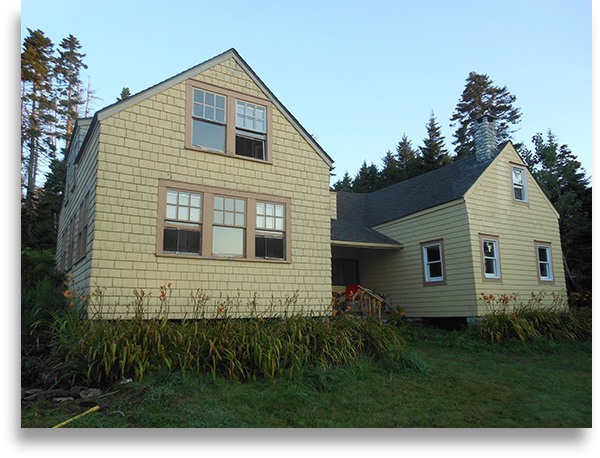To know a place at night puts it in a special realm between an everyday world and the cosmic unknown. It’s not lack of sight; it’s a new vision. On nights when the moon is full and our eyes and brain strain to make sense of every detail as if the sun were out, and in this effort to discern the clover in the grass beneath our feet, shrouded by looming trees, seeing them as they have never seen them before; in a new light, as if for the first time. There are books that go to this place of magical realism; the authors Márquez, Allende, and Borges come to mind. Borges, on becoming blind, wrote:
| Nadie rebaje a lágrima o reproche esta declaración de la maestría de Dios, que con magnífica ironía me dio a la vez los libros y la noche. | No one should read self-pity or reproach Into this statement of the majesty Of God; who with such splendid irony, Granted me books and night at one touch. |
— Jorge Luis Borges, Seven Nights , (1984)
Maybe it is only in writing that we can share a glimpse of this place. Not to take a picture, the stars too faint to be on film; or, as seen in long exposures, leaving trails behind. What is it to see the streak of a shooting star in a photograph? That’s not how I saw it, staring at the Eastern sky and the ecstatic moment of first recognition that the firmament has moved. And not a line in the sky, as if a single event, but a heart pounding race, “can I watch it fall to earth?”
At our family’s cottage in Maine, my brother and I would take the two beds by the front window in the “dorm” room. There, with eyes closed, you could see the waves with their shush over the stones of the cove, never leaving any quite where they found them. Going to Maine in August meant watching the Perseid meteor shower from bed at night. I can’t remember it being a contest for how many we saw, but just that magic moment when in the dark your brother asks, “did you see that one?” And you think, “yes, yes I saw that one,” and you say, “yes I did.” A moment that might not be seen in any other way. A bit of rock, burning up in the atmosphere, that two brothers saw and shared.

In the morning the world returns, but not before bathing in the light of dawn. The world before sunrise is washed with blue and green and not the colors of daylight. You wonder how many ways to see the world there are, as Monet wondered when painting haystacks. If I could just keep my sight from the night before, when the sun was out, could I learn to see magic all the time?